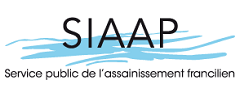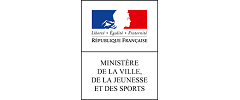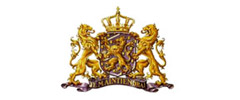Hazardous substances and wastes in Indonesia: Gender Dimensions
BaliFokus, Indonesia, and Women Engage for a Common Future (WECF), Netherlands, organised a stakeholder meeting this week at the Ministry of Environment and Forestry office in Jakarta to address the gender dimensions of hazardous substances and waste management.
26.02.2017 |
Jakarta, 25 February 2017 - BaliFokus, Indonesia, and Women Engage for a Common Future (WECF), Netherlands, organised a stakeholder meeting this week at the Ministry of Environment and Forestry office in Jakarta to address the gender dimensions of hazardous substances and waste management.
BaliFokus and WECF working together in partnership with the United Nations Secretariat of the Basel, Rotterdam and Stockholm (BRS) Conventions and the Ministry of Environment and Forestry of Indonesia on a project titled Gender dimensions of hazardous Persistent Organic Pollutants (POPs) and waste.
“We are all daily in contact with harmful chemicals, which are present in products, food, water air and waste. But chemicals seem a very technical topic, and most people are not aware that there is a strong social-economic dimension,” explains Sascha Gabizon, Executive Director of WECF International. “Globally, all countries have agreed to ban the worst hazardous chemicals. Still in Indonesia, many women, men and children are unwillingly risking cancer and infertility from exposure to these banned chemicals.”
“Data on these dangerous contaminants in our food, air, and human biomarkers are lacking. Even more, we have no information what the health effects are,” says Yuyun Ismawati, Senior Advisor of BaliFokus. “The melting of plastics and electronic waste for so-called recycling is potentially a great source of dioxins and furans, which spread through the air, dusts and food chain to all the population. Population at risks are women, men, and children who are living next to the informal plastic and e-waste recycling factories.”
There are four global chemicals conventions under the United Nations. Indonesia has ratified the Basel, Rotterdam and Stockholm Conventions, and is preparing for ratification of the Minamata Convention on mercury. At the Stakeholder meeting on 23 February 2017, the Ministry of Environment and Forestry presented their updated National Implementation Plan of the Stockholm Convention, which plans for more research, awareness raising and increase their capacity for monitoring, but lacks of resources.
“All initiatives in that direction need support from all stakeholders to protect the future generation of Indonesia,” added Yuyun Ismawati. “For example the change.org petition of a mother to ban lindane – a banned POP – but still used as a treatment against head-lice.”
“We need a large-scale awareness raising campaigns targeted at various groups of the population which are most at risk of these toxic POPs, for example through the networks of breastfeeding mothers, women farmers and labour unions,” said Rossana Dewi from Gita Pertiwi Foundation. The breastfeeding mothers association commented that 74% of their members interviewed did not know that toxic chemical go from the mother’s body into the body of the child.
The representatives of various Indonesian NGOs also called for a better enforcement of existing legislation as well as more action to stop imports of harmful products from abroad, such as asbestos, e-waste and plastic wastes. They also called on industry to apply Extended Producer Responsibility, and ensure they only put products on the market that can be fully and safely recycled, and phase-out all other products, such as PVC plastic, one-way plastics, mercury etc.
Contact information:
- BaliFokus, Yuyun Ismawati, WA +447583768707, yuyun@balifokus.asia, www.balifokus.asia
- BaliFokus, Sonia Buftheim, +6287782378890, sonia@balifokus.asia, www.balifokus.asia
- WECF International, Sascha Gabizon, +31-30-2310300, wecf@wecf.eu, www.wecf.eu
Related News
How was your #PlasticFreeLent?
The last 40 days WECF ran a different Lent, a Plastic-free Lent!
31.03.2018
Implementing Agenda 2030 in Georgia: Where Are We Now?
WECF organised with Georgian government and the UN a workshop on the Sustainable Development Goals in Tbilisi, 19-21 February 2018
22.02.2018 | Tbilisi, Georgia
Gender, Chemicals and Waste high level event in Abuja, Nigeria
Women Environment Programme (WEP) Nigeria, and WECF organise high-level meeting in Abuja, Nigeria on Gender, Chemicals and Waste, on 10-12 of January 2018
10.01.2018
#BeatPollution: WECF at UNEA3 in Nairobi
Reflections on the UN Environmental Assembly in Nairobi “Towards a Pollution free Planet
11.12.2017
What Has Gender Got To Do with Chemicals?
WECF, WEP and Balifokus present new publication and documentary film at United Nations
05.12.2017





































